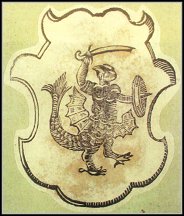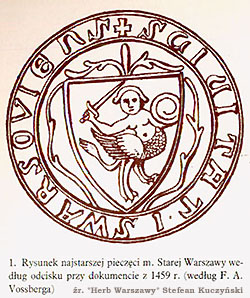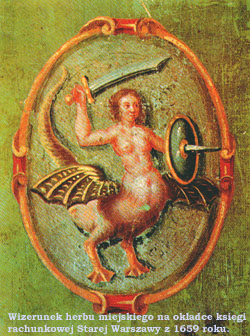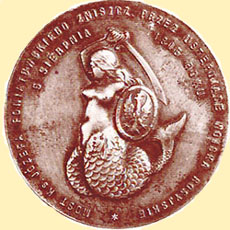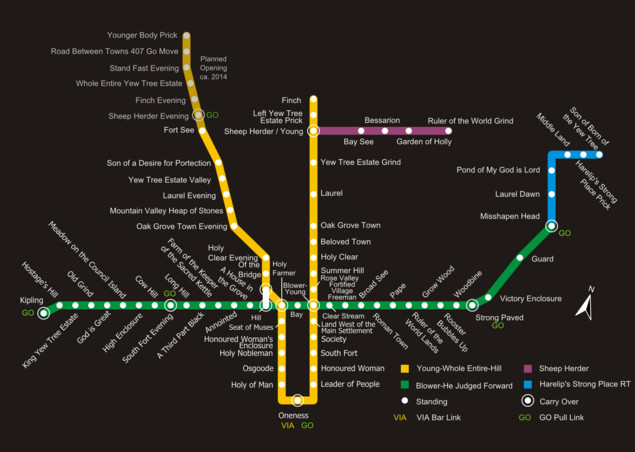USA, Canada /
Who is better informed, the expat or the Polonia crowd? [144]
With all due respect, Ziemowit, I profoundly disagree. This is a gross oversimplification. Here you will find a very rich source on various dialects in Poland: gwarypolskie.uw.edu.pl . Malopolska dialect as a whole is described there as being linguistically very diverse. This particular page [/url]discusses common features for this region and shows various boundaries of selected major phonetic and morphological phenomena in Malopolska:
Malopolska - as already emphasized above - is a linguistically very diverse. Complementing discuss the characteristics of the dialect of Malopolska presented below are maps showing the boundaries of the major selected phonetic and morphological phenomena in Malopolska.
gwarypolskie.uw.edu.pl/index.php?option=com_content&task=view&id=502&Itemid=110
gwarypolskie.uw.edu.pl/index.php?option=com_content&task=view&id=442&Itemid=43 - A Podhale jargon (sub-dialect) is one of the
Małopolska mountain belt dialects, which also includes: Spisz dialect on the east and Orawa plus south Żywiec, west of Podhale. Podhale dialect is internally diverse, due to the extent of the land (about 50 places).This particular page list 16 different dialectal features, specific to Podhale region. Stress on the first syllable is just one of them.
Górale are no other ethnicity than Polish.
Absolutely not true. You forgot about all other influences: German, Rusyn, Hungarian and Walachian colonization.
There are records of the early German settlements, dating back to the beginning of thirteenth century. One is known as a transumpt from 1251 of the privilege from 1234 given by Prince Henryk the Bearded to Teodor Cedro from the Gryfita family, governor of Krakow, allowing him to settle German colonists "in silva circa fluvios Ostrowsko, Dunaiecz et Dunaiecz niger, Rogoźnik, Lipietnicza, Salt , Ratainicha, Nedelsc, Stradom, quantum est de sylva ipsius, Dantes eciam his forces pactis et condicionibus his uti, quibus Theutonici Sleser ses in Sylvis locati utuntur ". ie, the prince of allow for settling of the German colonists (Teutonic Silesians) in the woods near the river Ostrowsko, Dunajec, Czarny Dunajec, Rogoźnik - righ tributary of Czarny Dunajec, Lepietnica - left tributary of Czarny Dunajec and Słona, Ratajnica, Niedzielsko i Stradomka on Beskid.
pl.wikipedia.org/wiki/Podhale
From the times of the Gryfita family comes village Rogoźnik, mentioned in a document from 1237. Teodor Cedro, having no children, donated all his estates to Cistercian monks and built for them a church and a monastery at Ludżmierz (5 km west of today's Nowy Targ). They continued establishing new villages on the basis of the Magdeburg Law: Długopole (1327), Krauszów (before 1333), Ludźmierz (1333), Szaflary (1338) and Waksmund and Nowy Targ (around 1287), and later Kolkuszowa. Such activity was made easier for them by a general privilege obtained from King Władyslaw £okietek in 1308, which allowed them establishment of new villages without asking the King for permission first.
At the same time the settlement activity was carried by Śreniawita family, in the Dunajec valley, east of Waksmund. Their representatives, Lasockis, established Dębno (1335), Ostrowsko (before 1338), Harklowa and £opuszna (second half of XIV c.). Consequently the Dunajec valley has been settled in XIII and XIV c. on the W-E line Długopole-Waksmund-Maniowy (Czorsztyn) (about 40 km) and Szaflary, south of Nowy Targ.
The villages were settled on the basis of the German law. It was based on a contract between an organizer of the settlement action (zasadźca) and the owner of the land. The agreement, called the location privilege, stipulated the rights and obligations of the colonists. The land within a certain area, which they had to exploit by cutting down forests and draining swamps, became the hereditary property of its users. The settlers received personal freedom and the right to self-governance, headed by the mayor - usually "zasadźca". Duties for the owner In the land were clearly identified and could not be arbitrarily increased by the owner of the land. They were usually in form of rent payments and other small tributes. During the time needed to clear the land and settle down the settlers were exempt from all fees and charges. It was a period of so-called "wolnizna" ("wolny" - free), and it only applied to the areas where were no previous settlements. The "wolnizna" period was usually 20 years.
Typically, the settlers received one "łan" (łac. laneus, cs. lán, German. Lahn lub Hube - 25 ha in Lesser Poland) and "zasadźca", the hereditary mayor - several to dozens of "łanów" best located. In addition, the mayor had the right to a run tavern, mill, fish ponds, set beehives in the woods, and had hunting and fishing right. He also had the right to settle his own serfs and craftsmen on his own land. In addition, he was entitled to 1/6 of rent collected. "Zasadźcas" were people from various foreign states: Germany, Silesia, the Netherlands, as well as the native nobility and wealthier peasants. For the settlement the German settlers were used. Many names of Podhale villages witness to German colonization of Podhale: Harklowa, Szaflary, Krauszów, Waksmund.
spzaruski.republika.pl/region/Podhale.html#początki_osadnictwa
Regarding Wallachian influence, check, for example, this source: genealogia.okiem.pl/wolosi_slowa.htm
Derivatives of "Wallachian" word in mountain belt dialects:Wałach, Wołoch, Wałaszyn - (primary meaning) high mountain shepherd, a man tending to sheep. Helpers of the head shepherd - baca, were also called "wałachs". Polish Górale (highlanders) used to call "wałachs" those among themselves who lived in mountain meadows and tended to sheep.
Secondary meaning: Wałach is an inhabitant of mountain region around Cieszyn.
Wałach in the sense of a junior shepherd, has been replaced by Hungarian "juhas" in XII century. Still the term "wałaszek" survives in Podwik village, Podhale.
There are many other words and expressions in Podhale region, involving "wałach":
wałaska, wałaska gromada, wałasznik, wałaśnik, zwyczaje wałaskie, wałaska kasza, taniec wałaski, trąba wałaska, strój wałaski, koszula wałaska, portki wałaskie or wałaszczaki (wałoszczoki), koszula wałaska, burka wałaska, burnus wałaski, wojewoda wałaski (wajda), osadnictwo na prawie wołoskim (settlements based on Wallachian Law (rule)) , etc.
Geographical names of Walachian origin, cover entire Carpathian belt and Balkans. See here: pl.wikipedia.org/wiki/Nazwy_geograficzne_pochodzenia_wo%C5%82oskiego
Here are few familiar examples:
from bjêska - a mountain meadow, come various mountain ranges: Beskid, Beskidy, Beskidek, Beskidnik (Wetlina, Bieszczad, Bieszczady, Byskid, Byskyd
from chica - hair, beard and chicera - bearded mountain, come names of mountain peaks: Kiczera, Kiczora, Kyczera, Kiczerka, Kiczura, Kiczurka, Keczar, Kieczera, Kikula
from coliba - a hut comes koleba or koliba - a shepherd hut
from grui - a hill, a peak comes Podhalian "groń", an elevated shore of a river or stream. Also "grań" means ridge of a mountain top or a crag: Groń, Gronik, Hruń, Hron
from istep - a settlement, istŭba - a tent, old Ruthenian istobka - bathroom: Istebna (Poland), Istebné (Slovakia - Orava)
from izvor - a spring: Zwor (Stuposiany), Zwur, Zworzec (Dwernik), Zwir, Wirski (Wołosate), Zwory (Lutowiska), Na Zworcach (Sianki), Zverovka (Slovakia - Orava)
from măgura - a stand alone massif, also from Old Slavic maguła "mogiła" - a grave: Magura, Magurka, Magurki, Maguryczne, Magurzec, Maguryczny
from repede - rapid (here: about the current of a river): Rzepedź
from sălaş - a shelter: Szałas, Sałasz, Sałasziszcze, Sałaszisna/Sałaszczisna (Dwerniczek), Sałasyszcze (Krywe), Sałaszyce/Szałaszyszcze (Stuposiany, Szalasziszcze (Wołosate), Szałasisko
Native vocabulary of Podhale dialectsA major characteristics of Podhale dialects is presence of native words, which do not exist in any other Polish dialect.
They are: ciupaga (hatchet), wyzdajać (invent, prepare), złóbcoki (a musical instrument similar to fiddle), nomowiać (to advice to marriage), kumoterki (a decorative sled), pytac (an older man whose role is to invite guests for a wedding) and more. There many words specific to Zakopane - both native and borrowed. In Podhale dialect there are many words that do not exist beyond the mountains: piarg (a rock mound), perć ( mountain path), siklawa (mountain waterfalli), as well as activities related to shepherding and mountain lifestyle: bacówka (shepherd's shelter), bryndza (specific sheep cheeses), koliba (shelter), watra (shepherd's campfire), zawaterniok (a log to to maintain fire), dutki (money), dziedzina (village), moskol (cake made with boiled potatoes and flour), serdok (sleevless sheepskin jacket), styrmać sie (climb, climb up) and many other words.
In some cases, the Podhale vocabulary is more accurate than the corresponding nationwide language. Examples: siano (= hey from the first cut) vs. potrow (= hey from the second cut); watra (= campfire inside a shelter) vs. ogiyń (= fire, campfire in the field).
There are many borrowings from other languages: German: hamry (= forges); Hungarian: baca (= head shepherd), juhas (junior shepherd); Slovakian: frajier (= a lover), hore (= up, upside), héboj (= come), pościel (= a bed); Wallachian: watra, bryndza.

